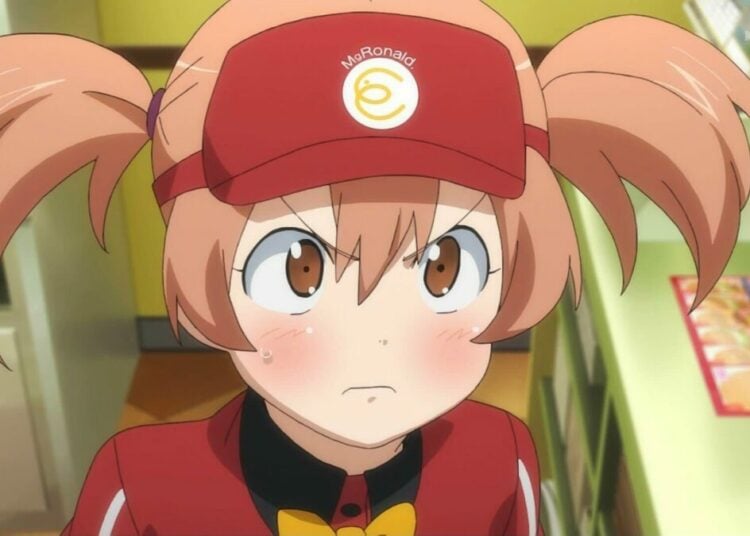Hello and happy Friday the 13th, often considered to be a day of good luck in Japan, since many festivals begin on the 13th of the month. Superstitions are often a big part of life in Japan, so I thought I’d take this opportunity to share some of them with you. First, never cut your fingernails at night, or you won’t be able to be with your parents when they die — an interesting Buddhist twist on “step on a crack,” I guess. Whistling at night is out, too, unless you want snakes to pay you a visit. The number 13 is considered unlucky in the West, but in Japan the number to avoid is 4, due to the fact that the number, read shi in Japanese, also means “death” (airline counters omit both numbers for good measure). When you buy a new pair of shoes, be sure not to wear them for the first time when it’s raining, or else every time you put those shoes on it will rain. Superstitions about salt are apparently common all around the world, too — in Japan it’s sprinkled over the body to purify you before entering your home after attending a funeral, which keeps dead spirits from inhabiting your house, or something like that.
Learning a foreign language is a difficult prospect. Modern teaching methods make it easier, of course, using approaches such as the Communicative Method (learning using communication-centric activities rather than, say, rote memorization of grammar) or the Natural Approach (mimicking how children acquire language by building listening skills and vocabulary before they start to produce speech). The way information is organized is important, too. For example, one area of English that’s especially challenging for foreigners are two-part idiomatic verbs, which embed complex meaning in very simple words, and it makes sense for students of English to tackle these problems as a group. What’s the difference between sleep over or oversleep? Act up and act out? Are drop in and drop out opposites? I had a Japanese friend who drank too much and proclaimed she was about to “throw off” — then she couldn’t understand why everyone was rolling on the floor laughing at her goof. Grouping linguistic concepts can help for students of Japanese, too. For example, a lot of words in Japanese incorporate no ko (child of…) and it can help to learn these together. A mushroom is a kinoko (child of a tree), bamboo sprout is takenoko (child of bamboo), caviar/fish roe is kazunoko (child of cod), and the powdered vinegar you sprinkle over rice when making sushi is known as….sushinoko (child of sushi). Learning them together like that makes them more likely to “stick” in your brain.
I’m currently hooked on Heroes, the NBC show that puts a new spin on the idea of comic book-style super powers. It’s a lot of fun in part because of the two characters who speak Japanese throughout the story, including Hiro Nakamura, the clock-watching salaryman who developed the ability to stop time. It’s great to be watching a story involving actual Japanese people, since it’s all too common to see Koreans or Korean Americans playing Japanese roles, like Linda Park as Hoshi Sato on Enterprise or Sung Kang in The Fast and the Furious: Tokyo Drift — the unspoken implication is that Japanese are so bad at English that Koreans must step in and portray them on film. Although Heroes show does a great job at showing the Japanese side of the characters accurately (including my mon George Takei, he don’t shiv), for the record I’ve yet to meet a single Japanese person who makes Star Trek cultural references in his speech. It’d be much more common for the average Japanese on the street to utter, say, the famous line that Kenshiro of Fist of the North Star says before he kills an enemy — “You are already dead!” / Omae wa mo, shinderu — than to ask Scottie to beam them up. But that’s just me being pedantic again.
J-List has been involved in licensing and translating Japan’s unique PC dating-sim games for a long time — an incredible *ten years* in fact, a full decade of helping fans enjoy these amazing story- and character-based love sims games in English. To celebrate this special event, we’re announcing a limited edition JAST USA Memorial Trading Card collection, a series of 55 beautifully printed laminated plastic cards depicting scenes from the great English-language bishoujo games from G-Collections, Peach Princess and JAST USA. While supplies last, you’ll get one of these beautiful foil-wrapped cards with each game purchased — and if you’re buying our download editions, you’ll have the option of having the free card sent to you via postal mail for a nominal shipping fee. In addition to the cards, we’ve printed up some gorgeous bishoujo game posters with catalogs of our current and future titles on the other side, which you’ll also get free with each order.















